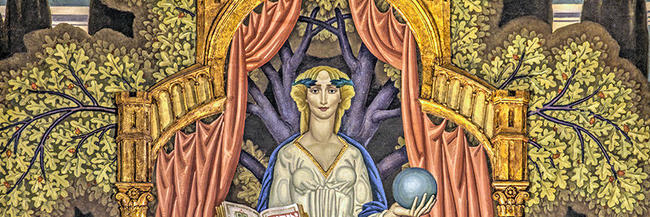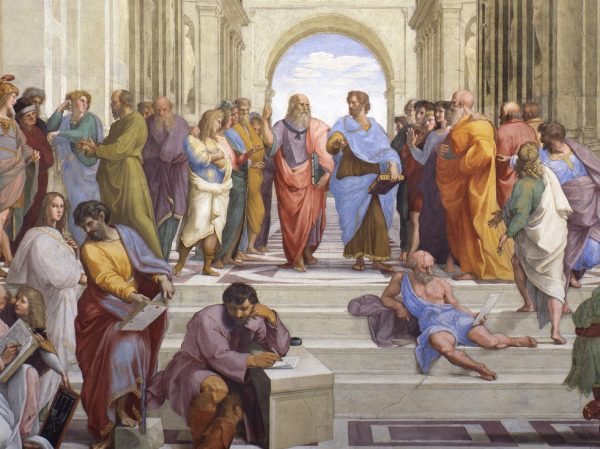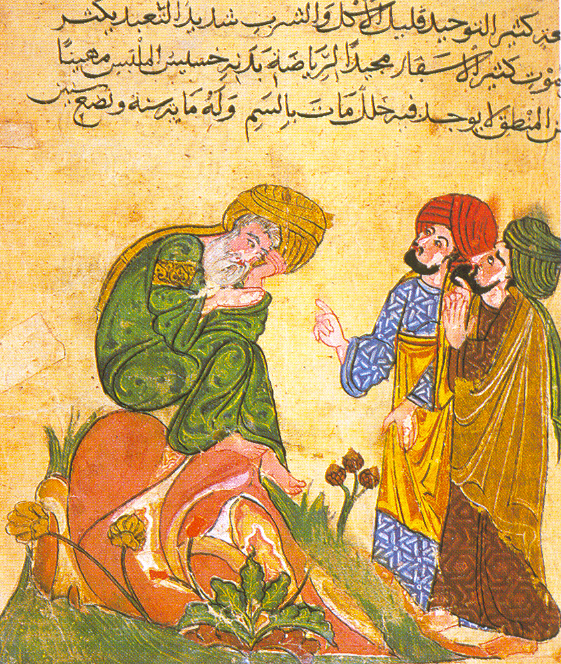Democracy and despotism in a digital age.
Liberalism: Mend It, Don’t End It

We don’t need a revolution to find political redemption.
Our politics is in crisis, and this has led (again) to attacks on liberalism. We are in some sense or another all liberals—believers in, and practitioners of, freedom of speech, association, religion, and property rights. Of course, the character of our crisis and the character of our liberalism both would have to be adequately understood if we wanted to clearly understand our current condition. Unfortunately, this is impossible in the quarrels of intellectuals, who are both scholars and political actors but obey the rules of neither.
We are, as Aristotle said, reasoning animals, so we must start from the quarrel we have rather than one we might hope for: recently, intellectuals have become famous for attacking liberalism. Patrick Deneen has written a very influential book, Why Liberalism Failed (2018), blaming liberalism for the hollowing out of our moral habits and public associations. Yoram Hazony has written a very successful book, The Virtue of Nationalism (2018), defending nationalism and blaming liberalism for its globalist imperial ambitions. And Adrian Vermeule wrote a provocative attack on liberalism as a political theology in American Affairs.
The most obvious targets for the criticism of these distinguished professors of philosophy, politics, and law would seem to be Progressives. Progressives alone would concede the charges at hand—and, indeed, treat them as badges of honor. After all, is there nothing noble in an individualist autonomy that aims at global citizenship through all political means available, including the federal government? This seems to be Fukuyama’s Hegelian prophecy in The End Of History (1992), which has been mocked since 9/11 but was a farsighted essay on Progressive politics and globalization.
However, the three do not actually address themselves to Progressives. They make a far more interesting, if less obvious claim: Liberalism as political thought is to blame for our crisis, as is the liberal political tradition in America—to which we owe our Declaration of Independence and Constitution, our founding, Lincoln’s justification of the Civil War, and our theory of rights and government by consent. We must admire these anti-liberal partisans for their public spirit and their fine writings, but patriotism requires we defend our tradition.
Locke And Aristotle
The greatest champion of liberalism is John Locke, the philosopher of the Glorious Revolution as well as of the American Revolution. This makes him the target of the enemies of liberalism. Since he has succeeded, ironically, he can be forgotten; and since he is a philosopher, he is difficult to understand. But our political crises always cause us to return to our origins and there we cannot escape finding Locke. If we resist the desire to blame him for having helped make our lives possible, we can learn what and why our Founders learned from him.
To begin with, Locke did not invent our fundamental beliefs. He gave us neither trial by jury nor Christianity. He merely taught his many followers to think of these and all other institutions in relation to the ends they professed. He wanted to show people a reasonable ground of politics in a time of crisis, when England was recovering from a Civil War that involved executing a king and restoring his heirs to the throne—both decisions of Parliament.
Locke established the doctrine of natural rights we all now follow, that government derives its just powers from the consent of the governed. Its purpose was to restore the autonomy of politics from the madness that had led various partisans to atrocious wars in Europe. Locke started from our common humanity and explained how a sophisticated political system could be based on our natural desires, since he could prove they orient us to the good, or happiness. He argued on a parallel track to Aristotle, from pre-political man all the way to a fully formed regime.
The greatness of liberal regimes proves Locke right—only Britain and America can be said to have maintained themselves as regimes through all the crises of modern times. But this means Locke can also be challenged in every crisis. We therefore need a theoretical defense of his teaching, and here no one has surpassed Harry Jaffa. His Aristotle and Locke in the American Founding is a rare treatment that shows a political philosopher at work and should be read alongside his essay on Aristotle in the first edition of the Strauss/Cropsey History of Political Philosophy (1963).
What makes the philosopher unique among thinkers, Jaffa counsels, is he takes his guidance from nature. Inquiry into nature rarely occupies us, because we have to deal with practical affairs—but when it comes to establishing foundations, it is paramount. Jaffa shows that Locke had to deal with our modern situation, in which our loyalties are divided between a political community and our personal hopes for salvation, which led to various political catastrophes whenever claims to rule by divine right were plausibly advanced. Locke is not an Aristotelian, but he is a bastard child of Aristotle. He brought political philosophy to bear on the modern situation and restored the twin requirements we all share, for justice in our political affairs and for happiness in our own lives. But to do this he had to separate the pre-political facts of life from the political facts in an innovative way.
It is this combination of ends we can all understand by means only philosophers could have designed that shows the greatness of political philosophy. It took a scholar like Jaffa to show just how ambitious and necessary in this way Locke’s philosophy is. Locke created the separation of powers which makes modern government competent and at the same time the separation between private life and public life that allows us to pursue our own ends competently.
Before him, natural human powers, especially in the arts and sciences, were underrated in a way now unimaginable. This is why he was able to reorient people from violent passions to more peaceful pursuits. The newly enhanced place given to the pre-political requirements of economics allowed Locke to redefine politics narrowly, lodge it in a representative government, and therefore allow for both political greatness and for the equal dignity of all citizens. Thus, both productive and deliberative arts were given their due.
Following Aristotle, Locke took it upon himself to offer politicians and peoples a system of government in accord with their habits, beliefs, and circumstances. This is why the Founders looked to him for guidance. The Founders were mostly lawyers and politicians with a wide experience of affairs—they judged Locke’s political theory against that experience—and of course against opinion in America at the time—and found him uniquely suited to guide practical action.
The most shocking changes in political circumstances have not sufficed to destroy Locke’s political system of representation, separation of powers, and separation of public and private life, because that system is based on our own belief about our natural equality. It is also the basis of all modern ideas of individualism: Locke didn’t invent it, he only justified it in a way useful to politics and thus formed the basis of democracy, the only plausible alternative to Aristotle’s teaching on citizenship. Jaffa argued boldly that Aristotle himself, if alive today, would speak as Locke did of our rights issuing from natural equality, since we have no other way to arrange politics in accord with human dignity rather than tyranny.
Locke And Tocqueville
Locke’s liberalism expanded vastly the pre-political realm at the expense of the political. The separation of society from the state allows for a vast reduction in political partisan violence and encourages instead that people associate within society for their own ends. The requirements of our relational being, from family to church to education, and the requirements of acquisition, in our various economic enterprises, can come into conflict (as is inevitable in human affairs) without turning into an attempt to overthrow the regime by revolution.
Our elaborate political system depends on institutions in a way simply unknown to the pre-modern world. But that system itself needs our pre-political experience of affairs, education of character, and habits of thinking and action. Our arts and sciences constantly require innovation, as does therefore our commerce and our understanding of property. On the other hand, the moral requirements derived from our natural equality also take a long time to understand or to apply.
The American people over centuries settled into a way of life that rendered liberal democracy unassailable. This is not to deny the Civil War—or any other serious political struggle—was necessary to vindicate the principle of natural equality. It is only to show that the original principles were never abandoned or replaced by others. It’s unimaginable now to hear people talk about forming another regime without the equality of the citizens and their representation in office.
As Tocqueville showed, democracy needs an education that includes some of the virtues of the ancient aristocracies—but those virtues would have to be found in the actual practices of the American people, not in histories or in foreign places. Indeed, democracy for Tocqueville issues from the providential finality of equality—this is his attempt, after Locke, to restore Aristotle’s political science and its focus on the regime (now called the social condition) as a reflection of the comprehensive political good.
This new political arrangement we call liberalism is thus both in need of prudence and capable of stirring reflection on human nature—it has both a practical and a theoretical aspect. Americans have therefore been able to hold on to our political freedom even as we reflect on the difficulties that face us in times of crisis, that we may preserve and improve it. Our actions are primarily within society or private life, rather than in politics or public life, but they habituate us to act together for common purposes—ever mindful of the good and of the habits and institutions that further it. Thus, human dignity and human action are tied together.
It is precisely because the powers of government are limited and defined that the scope of human action is enlarged. The teaching that natural rights issue from natural equality has the salutary effect of encouraging us in our pre-political associations to demand and expect political accommodations for our ethical and economic concerns, preparing therefore the ground for debates about what justice requires whenever we have serious disagreements about how to arrange our affairs. At the same time, the elaborate institutional system gives guidance to popular concerns and prepares the way for deliberation to take over from passion.
American Politics and Education
For all Locke’s greatness and that of our Founders, liberalism has a weakness unusual in a regime—the education of elites. The separation between state and society almost guarantees that the highest offices in the land will be occupied by a small number of men, relative to the population, who pursue them more or less as a way of life. Politicians are not a class, nor entirely removed from American life, but they have to deal with unusual tasks of public importance which the public grasps only imperfectly, mostly through their effects. Further, politicians are primarily recruited from among lawyers, now as at the Founding.
Further still, the liberal reliance on institutions itself requires the formation of character which the institutions themselves cannot supply. The Founders had different ideas about education, starting with Ben Franklin, who hoped to foster a republican spirit through public schools where boys would engage in spirited sports, even a generation before the Founding. Afterward, we have Jefferson’s plan to establish an education for the recruitment of elites, regardless of social class or economic situation. Noah Webster and Benjamin Rush wanted to establish schools for enlightening the people, the one insisting on education for girls and the other on the necessity of moral-religious education.
But it is especially elites whose character and education we have to look at, since they are, in a representative government, uniquely influential and uniquely tasked with acting prudently on behalf of the entire nation. It is this authority that either makes or breaks them, according to the circumstances present, since they will become corrupt if they cannot wield it well. Lawyers now have almost no political education in the formal sense, but on the other hand the law is a broad avenue for exercising political influence and satisfying political passions—even to the exclusion of the consent of the governed. This is a dangerous situation, making for elites that are simultaneously unaccountable and ignorant.
The Founders established politics in accord with the habits and beliefs of Americans, setting to one side the limit of the Constitution and to the other the limit of public opinion. This is again in accord with Locke, who restored opinion about the good to its natural place in human affairs, but also required a political system that protects opinion from either dissipating in indifference or hardening into partisan fanaticism. In our case, the Constitution is largely immune to elites who want to change it without the people’s consent, which the people almost never offer.
But understanding the Constitution is itself difficult. Therefore, education concerning the Constitution, how it requires that elites behave in order for institutions to operate properly, is necessary. But since the Constitution is left in the care of the people, it is necessary to educate elites about the Declaration of Independence, the best expression of the American Mind, so that the relation between the most exalted authority and the source of that authority in our way of life becomes clear to those who aspire to hold office. The American people are not constitutional lawyers—they instead hold to the teaching of the Declaration about our natural rights as both the source of political authority and the purposes politicians should pursue, our safety and happiness.
This education concerning the Constitution is not primarily for lawyers or judges, but for citizens and politicians—the branches of government attract different types of people and encourage different ways of thinking, but all require an enlightened patriotism, not merely some expertise or a credential that substitutes for reputation. Reflection on the common good is necessary for members of institutions to then be able to ask for the consent of the governed. This is seen primarily in moments of crisis, when statesmen arise and we have the unmistakable example of the connection between the system of government and the way of life of the people. But it should also be seen in the corruption of elites that leads to crisis, since they no longer concern themselves with persuading the people they are pursuing the common good.
We are again going through such a political crisis whose event we cannot foresee. We again must confront the need for a political education of elites—an education that finds American character in history and in our practice and which connects it to our system of government. Representation does not work otherwise, nor does the relatively untroubled peace of private life as separate from public life. The great popular anger we now see is a desire for retaliation against elites that have betrayed their trust. New elites are necessary, who can interpret this as a matter of justice, to which our way of life always tends.
The American Mind presents a range of perspectives. Views are writers’ own and do not necessarily represent those of The Claremont Institute.
The American Mind is a publication of the Claremont Institute, a non-profit 501(c)(3) organization, dedicated to restoring the principles of the American Founding to their rightful, preeminent authority in our national life. Interested in supporting our work? Gifts to the Claremont Institute are tax-deductible.
The crisis of modern liberalism and science requires skeptical political philosophy—but skeptical political philosophy is itself undergoing a crisis.
The case of Yale and Calvin
When God recedes, nihilism takes His place.
What is the Bedrock of Being? (A reply to Alex Priou.)






